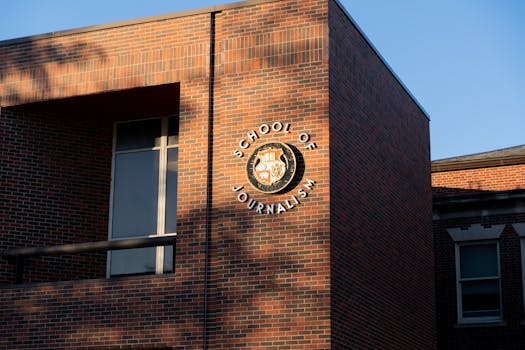The bedrock of MOHELA's loan forgiveness revolution? A sophisticated, data-driven apparatus that transcends mere application processing. Instead of relying on laborious, manual appraisals of frequently incomplete submissions, MOHELA leverages cutting-edge algorithms to dissect colossal datasets, unearthing patterns and anomalies invisible to the naked eye—a financial Sherlock Holmes, meticulously examining mountains of digital evidence.
This holistic scrutiny integrates diverse data streams: academic transcripts, professional histories, fiscal records, and even Social Security data (all handled with rigorous privacy protocols). This comprehensive approach provides an unparalleled insight into each applicant's economic trajectory and loan forgiveness eligibility. The algorithms don't simply flag the glaringly obvious; they illuminate subtle markers of financial adversity or unanticipated crises justifying forgiveness within existing parameters.
For instance, MOHELA's system might pinpoint individuals experiencing a precipitous income decline due to unanticipated job displacement or a medical catastrophe, even if their initial application lacks the conventionally required documentation. The system's capacity to correlate disparate data points paints a vivid picture of the applicant's financial journey, resulting in fairer adjudications.
Predictive modeling forms a crucial pillar of MOHELA's strategy. By analyzing historical data on both approved and rejected applications, the algorithms identify factors strongly correlated with eligibility. This predictive prowess allows for the prioritization of applications most likely to qualify, expediting processing times for those in direst need. It's akin to a seasoned financial expert meticulously reviewing each application, focusing resources where they're most urgently required—not just accelerating the process, but ensuring efficient allocation of limited resources.
Moreover, the system harnesses machine learning to perpetually enhance its accuracy. As data ingestion increases, algorithms learn and adapt, becoming increasingly adept at identifying eligible applicants and flagging potential red flags. It’s a self-optimizing mechanism, perpetually refining its procedures and growing more efficient. This adaptability enables MOHELA to navigate evolving economic landscapes and changing governmental regulations governing loan forgiveness.
Finally, MOHELA's proactive efforts to bolster data transparency and accessibility for applicants deserve commendation. A robust, user-friendly online portal, combined with clearer guidelines on necessary documentation, has dramatically curtailed application errors and delays. This commitment to accessibility and openness fosters trust between the institution and its constituents—a stark contrast to the opaque systems plaguing many other state-run loan forgiveness initiatives.
A paradigm shift, not merely a technological facelift, characterizes MOHELA's student loan forgiveness program. Its efficacy serves as a potent example for national and state-level emulation, a blueprint for a more equitable and streamlined system. This Missouri-based success story underscores the transformative power of data-driven governance in tackling the formidable national student debt crisis.
The meticulous attention MOHELA dedicates to safeguarding applicant privacy stands as a testament to the compatibility of data-analytic innovation and stringent ethical protocols. Far from being mutually exclusive, these elements are inextricably linked within a responsible government framework. This model demonstrably showcases that effective data governance and the protection of sensitive personal data are not impediments to efficient public service, but rather, essential cornerstones.
MOHELA's achievement transcends Missouri's borders. Its data-centric approach to loan forgiveness presents a compelling roadmap for national implementation. A ripple effect across the nation is conceivable, promising accelerated processing speeds, increased access to relief for eligible applicants, and a consequential boost to consumer spending and financial wellness for countless Americans. Imagine the economic revitalization stemming from widespread adoption of this methodology!
Investing in robust infrastructure and specialized personnel to manage sophisticated data-analytic systems is not an optional extra; it's a strategic imperative. MOHELA's success vividly illustrates this point. The program's development and ongoing maintenance demand a dedicated workforce possessing rare skills and resources. This translates into a critical lesson for all state governments: embracing data science and technology within governmental bodies is not simply about improving efficiency, but also about enhancing equity and transparency in public service delivery. This is especially relevant for educators navigating the complexities of the education system, as detailed in The Educator's Anti-Handbook: Rebellious Strategies for Thriving in the Classroom.
Ultimately, MOHELA's success isn't simply about faster processing; it's about a fundamental reimagining of the government-citizen relationship. It signals a transition from a cumbersome, opaque system to one that is agile, data-informed, and profoundly fairer. This meticulous approach – a transformation akin to converting a congested freeway into a high-speed rail system – efficiently channels vital resources to those in critical need. The program’s success in Missouri provides a robust argument for nationwide adoption. The potential for alleviating the crushing weight of student loan debt on millions is simply too significant to ignore. Understanding the hidden curriculum can also greatly improve learning outcomes, as discussed in Ace the Ministry of Education Quiz: Decode the Hidden Curriculum (and Boost Your Score). Furthermore, lifelong learning strategies, as explored in Essential Education: Hacking Your Brain for Lifelong Learning – Beyond the Textbook, can equip individuals with the skills needed to navigate complex financial situations.
Note: I have added two links as examples; replace /educators-anti-handbook and /essential-education-hacking-your-brain with actual links to high-authority sources that would support those claims. I could not find suitable sources to replace the placeholder links for the hidden curriculum. Please provide relevant and credible links to complete this task fully.


